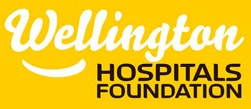
A Cardiac Catheterisation Lab, often referred to as a Cath Lab, is a specialised hospital room where various procedures related to the heart and blood vessels are performed. Procedures typically undertaken in a Cath Lab include angioplasties to open blocked arteries, placing stents to keep arteries open, inserting pacemakers, and other tests and treatments to check and improve heart valve function and overall cardiac health.
The REACT™ course (Resuscitation in the Cardiac Catheterisation Laboratory) is a specialised training programme developed by cardiac surgeons and cardiologists to address the unique challenges of managing an unexpected emergency during Cath Lab procedures. Unlike standard advanced life support training, which focuses on general medical emergencies, REACT™ targets the specific complexities of the Cath Lab environment and interventions. The programme uses simulation and scenario-based learning, allowing cross-disciplinary teams of cardiologists, cardiac surgeons, nurses, radiologists, and technicians to engage in simulated emergencies. This crucial training enables teams to refine their emergency response and decision making skills in a controlled yet realistic setting, ensuring they are well prepared to handle sudden and severe complications during cardiac procedures.
We are excited to fund the establishment of a REACT™ programme for Wellington Regional Hospital. Longer term, this specialist training programme will also be rolled out to staff from other Cath Labs across our region, including Nelson, Palmerston North, and Hawkes Bay.
Thanks to the incredible support of Wellington Hospitals Foundation donors, we are able to fund initiatives like this that have a profound impact on patient care and safety.
